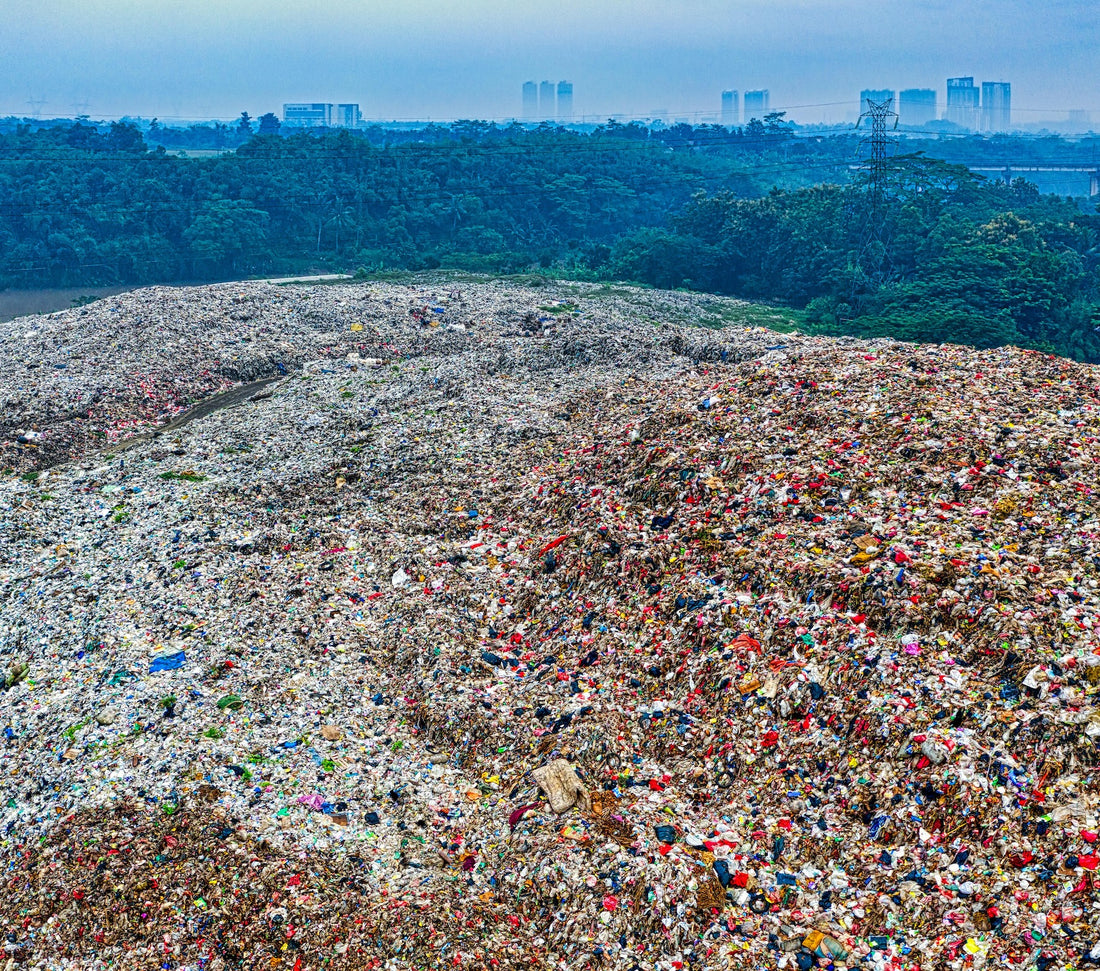In today's fast-paced world, the allure of cheap, trendy clothing is undeniable. But beneath the surface of fast fashion lies a darker reality—one that wreaks havoc on the environment, endangers human health, and exploits labor forces worldwide. From hazardous chemicals to microplastics, the consequences of our throwaway fashion culture are far-reaching and profound.
The Environmental Toll: Fast fashion's rapid production cycle relies on the heavy use of synthetic materials like polyester and nylon, derived from non-renewable resources. The manufacturing process of these materials releases alarming amounts of greenhouse gases, contributing to climate change. Additionally, the dyeing and finishing of textiles involve toxic chemicals like lead, mercury, and phthalates, which pollute waterways and harm ecosystems. Moreover, the disposal of fast fashion garments exacerbates the problem. Cheaply made clothing often ends up in landfills, where synthetic fibers can take hundreds of years to decompose, releasing harmful substances into the soil and air. In fact, the fashion industry is the second-largest polluter globally, trailing only behind the oil industry—an alarming statistic that underscores the urgent need for change.
Human Health Implications: The use of hazardous chemicals in textile production not only harms the environment but also poses significant risks to human health. Workers in garment factories, predominantly located in developing countries with lax regulations, are exposed to these toxins daily, leading to respiratory problems, skin diseases, and even cancer. Furthermore, the relentless demand for cheap labor fuels exploitation and unsafe working conditions, perpetuating a cycle of poverty and inequality.
Microplastics, another byproduct of fast fashion, further compound the problem. These tiny plastic particles shed from synthetic fabrics during washing, infiltrating water sources and entering the food chain. Recent studies have found microplastics in seafood, drinking water, and even in the air we breathe, raising concerns about their long-term health effects on humans.
The Impact on Labor: Behind every bargain-priced garment lies a story of human exploitation. Workers in garment factories endure long hours, low wages, and unsafe conditions to meet the relentless demand for fast fashion. Many are denied basic rights such as fair wages, healthcare, and the freedom to unionize. The true cost of fast fashion is borne by these marginalized workers, whose voices are often silenced in pursuit of profit.
How Can We Make a Change? The solution to the fast fashion crisis lies in conscious consumerism and industry-wide reform. As consumers, we hold immense power to drive change through our purchasing decisions. By choosing quality over quantity, supporting ethical and sustainable brands, and advocating for transparency and accountability within the fashion industry, we can make a meaningful difference.
At The Bio Store, we're committed to providing sustainable alternatives to fast fashion that prioritize environmental stewardship, ethical labor practices, and human health. From organic cotton clothing to eco-friendly home decor and beauty products, our carefully curated selection allows you to shop guilt-free, knowing that your purchases make a positive impact on the planet.
Join Us in Building a Better Future: Together, we can challenge the status quo and pave the way for a more sustainable and equitable fashion industry. Let's raise awareness, hold brands accountable, and demand change from the ground up. Shop now at The Bio Store and take the first step toward a more sustainable lifestyle. Together, we can make a difference—one mindful purchase at a time. Thank you for joining us on this journey toward a better world.
https://earth-thanks.com/collections/apparel-accessories/
Say Yes to Life, Earth Thanks!🌿

